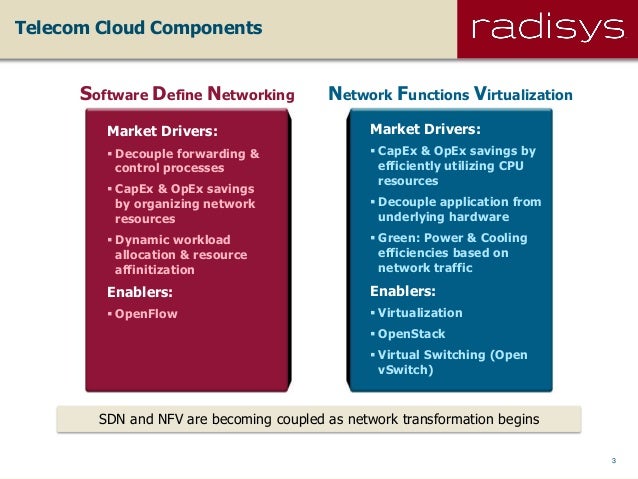


| 1 | /* |
|---|---|
| 2 | * pata_radisys.c - Intel PATA/SATA controllers |
| 3 | * |
| 4 | * (C) 2006 Red Hat <alan@lxorguk.ukuu.org.uk> |
| 5 | * |
| 6 | * Some parts based on ata_piix.c by Jeff Garzik and others. |
| 7 | * |
| 8 | * A PIIX relative, this device has a single ATA channel and no |
| 9 | * slave timings, SITRE or PPE. In that sense it is a close relative |
| 10 | * of the original PIIX. It does however support UDMA 33/66 per channel |
| 11 | * although no other modes/timings. Also lacking is 32bit I/O on the ATA |
| 12 | * port. |
| 13 | */ |
| 14 | |
| 15 | #include <linux/kernel.h> |
| 16 | #include <linux/module.h> |
| 17 | #include <linux/pci.h> |
| 18 | #include <linux/blkdev.h> |
| 19 | #include <linux/delay.h> |
| 20 | #include <linux/device.h> |
| 21 | #include <scsi/scsi_host.h> |
| 22 | #include <linux/libata.h> |
| 23 | #include <linux/ata.h> |
| 24 | |
| 25 | #define DRV_NAME 'pata_radisys' |
| 26 | #define DRV_VERSION '0.4.4' |
| 27 | |
| 28 | /** |
| 29 | * radisys_set_piomode - Initialize host controller PATA PIO timings |
| 30 | * @ap: ATA port |
| 31 | * @adev: Device whose timings we are configuring |
| 32 | * |
| 33 | * Set PIO mode for device, in host controller PCI config space. |
| 34 | * |
| 35 | * LOCKING: |
| 36 | * None (inherited from caller). |
| 37 | */ |
| 38 | |
| 39 | staticvoidradisys_set_piomode (structata_port *ap, structata_device *adev) |
| 40 | { |
| 41 | unsignedintpio = adev->pio_mode - XFER_PIO_0; |
| 42 | structpci_dev *dev = to_pci_dev(ap->host->dev); |
| 43 | u16idetm_data; |
| 44 | intcontrol = 0; |
| 45 | |
| 46 | /* |
| 47 | * See Intel Document 298600-004 for the timing programing rules |
| 48 | * for PIIX/ICH. Note that the early PIIX does not have the slave |
| 49 | * timing port at 0x44. The Radisys is a relative of the PIIX |
| 50 | * but not the same so be careful. |
| 51 | */ |
| 52 | |
| 53 | staticconst/* ISP RTC */ |
| 54 | u8timings[][2] = { { 0, 0 }, /* Check me */ |
| 55 | { 0, 0 }, |
| 56 | { 1, 1 }, |
| 57 | { 2, 2 }, |
| 58 | { 3, 3 }, }; |
| 59 | |
| 60 | if (pio > 0) |
| 61 | control |= 1; /* TIME1 enable */ |
| 62 | if (ata_pio_need_iordy(adev)) |
| 63 | control |= 2; /* IE IORDY */ |
| 64 | |
| 65 | pci_read_config_word(dev, 0x40, &idetm_data); |
| 66 | |
| 67 | /* Enable IE and TIME as appropriate. Clear the other |
| 68 | drive timing bits */ |
| 69 | idetm_data &= 0xCCCC; |
| 70 | idetm_data |= (control << (4 * adev->devno)); |
| 71 | idetm_data |= (timings[pio][0] << 12) | |
| 72 | (timings[pio][1] << 8); |
| 73 | pci_write_config_word(dev, 0x40, idetm_data); |
| 74 | |
| 75 | /* Track which port is configured */ |
| 76 | ap->private_data = adev; |
| 77 | } |
| 78 | |
| 79 | /** |
| 80 | * radisys_set_dmamode - Initialize host controller PATA DMA timings |
| 81 | * @ap: Port whose timings we are configuring |
| 82 | * @adev: Device to program |
| 83 | * |
| 84 | * Set MWDMA mode for device, in host controller PCI config space. |
| 85 | * |
| 86 | * LOCKING: |
| 87 | * None (inherited from caller). |
| 88 | */ |
| 89 | |
| 90 | staticvoidradisys_set_dmamode (structata_port *ap, structata_device *adev) |
| 91 | { |
| 92 | structpci_dev *dev = to_pci_dev(ap->host->dev); |
| 93 | u16idetm_data; |
| 94 | u8udma_enable; |
| 95 | |
| 96 | staticconst/* ISP RTC */ |
| 97 | u8timings[][2] = { { 0, 0 }, |
| 98 | { 0, 0 }, |
| 99 | { 1, 1 }, |
| 100 | { 2, 2 }, |
| 101 | { 3, 3 }, }; |
| 102 | |
| 103 | /* |
| 104 | * MWDMA is driven by the PIO timings. We must also enable |
| 105 | * IORDY unconditionally. |
| 106 | */ |
| 107 | |
| 108 | pci_read_config_word(dev, 0x40, &idetm_data); |
| 109 | pci_read_config_byte(dev, 0x48, &udma_enable); |
| 110 | |
| 111 | if (adev->dma_mode < XFER_UDMA_0) { |
| 112 | unsignedintmwdma = adev->dma_mode - XFER_MW_DMA_0; |
| 113 | constunsignedintneeded_pio[3] = { |
| 114 | XFER_PIO_0, XFER_PIO_3, XFER_PIO_4 |
| 115 | }; |
| 116 | intpio = needed_pio[mwdma] - XFER_PIO_0; |
| 117 | intcontrol = 3; /* IORDY|TIME0 */ |
| 118 | |
| 119 | /* If the drive MWDMA is faster than it can do PIO then |
| 120 | we must force PIO0 for PIO cycles. */ |
| 121 | |
| 122 | if (adev->pio_mode < needed_pio[mwdma]) |
| 123 | control = 1; |
| 124 | |
| 125 | /* Mask out the relevant control and timing bits we will load. Also |
| 126 | clear the other drive TIME register as a precaution */ |
| 127 | |
| 128 | idetm_data &= 0xCCCC; |
| 129 | idetm_data |= control << (4 * adev->devno); |
| 130 | idetm_data |= (timings[pio][0] << 12) | (timings[pio][1] << 8); |
| 131 | |
| 132 | udma_enable &= ~(1 << adev->devno); |
| 133 | } else { |
| 134 | u8udma_mode; |
| 135 | |
| 136 | /* UDMA66 on: UDMA 33 and 66 are switchable via register 0x4A */ |
| 137 | |
| 138 | pci_read_config_byte(dev, 0x4A, &udma_mode); |
| 139 | |
| 140 | if (adev->xfer_mode XFER_UDMA_2) |
| 141 | udma_mode &= ~(2 << (adev->devno * 4)); |
| 142 | else/* UDMA 4 */ |
| 143 | udma_mode |= (2 << (adev->devno * 4)); |
| 144 | |
| 145 | pci_write_config_byte(dev, 0x4A, udma_mode); |
| 146 | |
| 147 | udma_enable |= (1 << adev->devno); |
| 148 | } |
| 149 | pci_write_config_word(dev, 0x40, idetm_data); |
| 150 | pci_write_config_byte(dev, 0x48, udma_enable); |
| 151 | |
| 152 | /* Track which port is configured */ |
| 153 | ap->private_data = adev; |
| 154 | } |
| 155 | |
| 156 | /** |
| 157 | * radisys_qc_issue - command issue |
| 158 | * @qc: command pending |
| 159 | * |
| 160 | * Called when the libata layer is about to issue a command. We wrap |
| 161 | * this interface so that we can load the correct ATA timings if |
| 162 | * necessary. Our logic also clears TIME0/TIME1 for the other device so |
| 163 | * that, even if we get this wrong, cycles to the other device will |
| 164 | * be made PIO0. |
| 165 | */ |
| 166 | |
| 167 | staticunsignedintradisys_qc_issue(structata_queued_cmd *qc) |
| 168 | { |
| 169 | structata_port *ap = qc->ap; |
| 170 | structata_device *adev = qc->dev; |
| 171 | |
| 172 | if (adev != ap->private_data) { |
| 173 | /* UDMA timing is not shared */ |
| 174 | if (adev->dma_mode < XFER_UDMA_0) { |
| 175 | if (adev->dma_mode) |
| 176 | radisys_set_dmamode(ap, adev); |
| 177 | elseif (adev->pio_mode) |
| 178 | radisys_set_piomode(ap, adev); |
| 179 | } |
| 180 | } |
| 181 | returnata_bmdma_qc_issue(qc); |
| 182 | } |
| 183 | |
| 184 | |
| 185 | staticstructscsi_host_templateradisys_sht = { |
| 186 | ATA_BMDMA_SHT(DRV_NAME), |
| 187 | }; |
| 188 | |
| 189 | staticstructata_port_operationsradisys_pata_ops = { |
| 190 | .inherits = &ata_bmdma_port_ops, |
| 191 | .qc_issue = radisys_qc_issue, |
| 192 | .cable_detect = ata_cable_unknown, |
| 193 | .set_piomode = radisys_set_piomode, |
| 194 | .set_dmamode = radisys_set_dmamode, |
| 195 | }; |
| 196 | |
| 197 | |
| 198 | /** |
| 199 | * radisys_init_one - Register PIIX ATA PCI device with kernel services |
| 200 | * @pdev: PCI device to register |
| 201 | * @ent: Entry in radisys_pci_tbl matching with @pdev |
| 202 | * |
| 203 | * Called from kernel PCI layer. We probe for combined mode (sigh), |
| 204 | * and then hand over control to libata, for it to do the rest. |
| 205 | * |
| 206 | * LOCKING: |
| 207 | * Inherited from PCI layer (may sleep). |
| 208 | * |
| 209 | * RETURNS: |
| 210 | * Zero on success, or -ERRNO value. |
| 211 | */ |
| 212 | |
| 213 | staticintradisys_init_one (structpci_dev *pdev, conststructpci_device_id *ent) |
| 214 | { |
| 215 | staticconststructata_port_infoinfo = { |
| 216 | .flags = ATA_FLAG_SLAVE_POSS, |
| 217 | .pio_mask = ATA_PIO4, |
| 218 | .mwdma_mask = ATA_MWDMA12_ONLY, |
| 219 | .udma_mask = ATA_UDMA24_ONLY, |
| 220 | .port_ops = &radisys_pata_ops, |
| 221 | }; |
| 222 | conststructata_port_info *ppi[] = { &info, NULL }; |
| 223 | |
| 224 | ata_print_version_once(&pdev->dev, DRV_VERSION); |
| 225 | |
| 226 | returnata_pci_bmdma_init_one(pdev, ppi, &radisys_sht, NULL, 0); |
| 227 | } |
| 228 | |
| 229 | staticconststructpci_device_idradisys_pci_tbl[] = { |
| 230 | { PCI_VDEVICE(RADISYS, 0x8201), }, |
| 231 | |
| 232 | { } /* terminate list */ |
| 233 | }; |
| 234 | |
| 235 | staticstructpci_driverradisys_pci_driver = { |
| 236 | .name = DRV_NAME, |
| 237 | .id_table = radisys_pci_tbl, |
| 238 | .probe = radisys_init_one, |
| 239 | .remove = ata_pci_remove_one, |
| 240 | #ifdefCONFIG_PM_SLEEP |
| 241 | .suspend = ata_pci_device_suspend, |
| 242 | .resume = ata_pci_device_resume, |
| 243 | #endif |
| 244 | }; |
| 245 | |
| 246 | module_pci_driver(radisys_pci_driver); |
| 247 | |
| 248 | MODULE_AUTHOR('Alan Cox'); |
| 249 | MODULE_DESCRIPTION('SCSI low-level driver for Radisys R82600 controllers'); |
| 250 | MODULE_LICENSE('GPL'); |
| 251 | MODULE_DEVICE_TABLE(pci, radisys_pci_tbl); |
| 252 | MODULE_VERSION(DRV_VERSION); |
| 253 |

Drivers Radiomaster Tx16s

Radisys Drivers
Ace car driver. Driver Description Download drivers for Cirrus Logic CS4207 on Radisys CR300 sound cards (Windows 7 x64), or install DriverPack Solution software for automatic driver download and update Are you tired of looking for the drivers for your devices? Drivers pandp. Radisys open sources its 4G RAN software on the Qualcomm® FSM™ Platform to deliver an end-to-end RAN SoC for small cell and CBRS deployments. The advent of CBRS is a key driver for.





